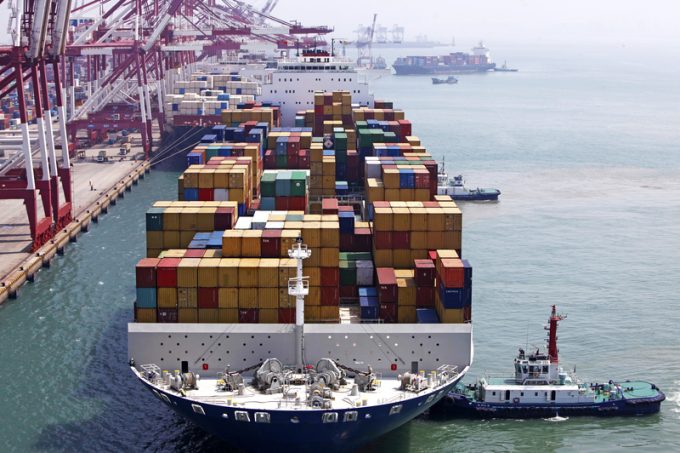Typhoon Kong-ray creates congestion at Shanghai, Ningbo and Kaohsiung
Asian container ports Shanghai, Ningbo and Kaohisung are working through congestion after Typhoon Kong-Rey blew ...
XPO: BUILDING BLOCKSHLAG: BIG ORDERLINE: REACTIONLINE: EXPENSES AND OPERATING LEVERAGELINE: PIPELINE OF DEALS LINE: DEMAND PATTERNS LINE: LANDSCAPELINE: CONF CALL STARTSDSV: UNTOUCHABLEEXPD: NOT AS BULLISH AS PREVIOUSLYFWRD: SPECULATIVE RALLY MAERSK: INTEGRATED LOGISTICS WIN MAERSK: TRUMP TRADEKNIN: THE SLIDELINE: DEBUT AAPL: ASIA CAPEXDHL: THE HANGOVERXPO: ELECTION DAY RALLY
XPO: BUILDING BLOCKSHLAG: BIG ORDERLINE: REACTIONLINE: EXPENSES AND OPERATING LEVERAGELINE: PIPELINE OF DEALS LINE: DEMAND PATTERNS LINE: LANDSCAPELINE: CONF CALL STARTSDSV: UNTOUCHABLEEXPD: NOT AS BULLISH AS PREVIOUSLYFWRD: SPECULATIVE RALLY MAERSK: INTEGRATED LOGISTICS WIN MAERSK: TRUMP TRADEKNIN: THE SLIDELINE: DEBUT AAPL: ASIA CAPEXDHL: THE HANGOVERXPO: ELECTION DAY RALLY

Who would have thunk it? That state-owned ports restrict competition and abuse market position to price-gouge customers? But the interesting aspect, as this report from Splash247 shows, is that the government has decided they aren’t going to let them get away with it, following a ruling handed down by China’s National Development and Reform Committee, which ordered ports such as Shanghai, Tianjin, Ningbo and Qingdao to open up their towage services markets and reduce container handling fees by 10-20%.
Comment on this article